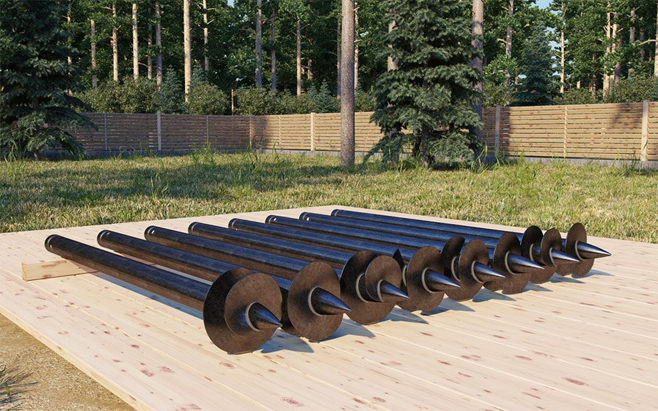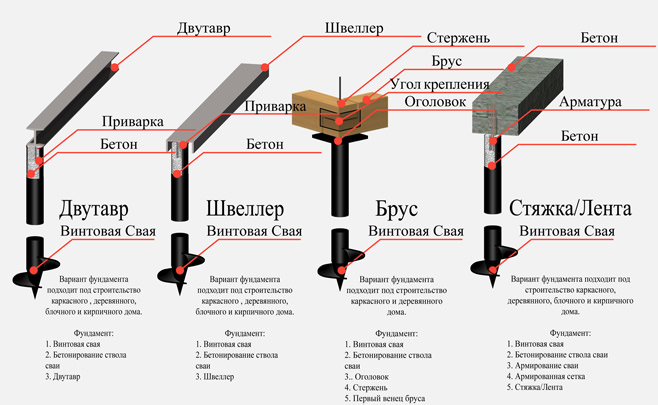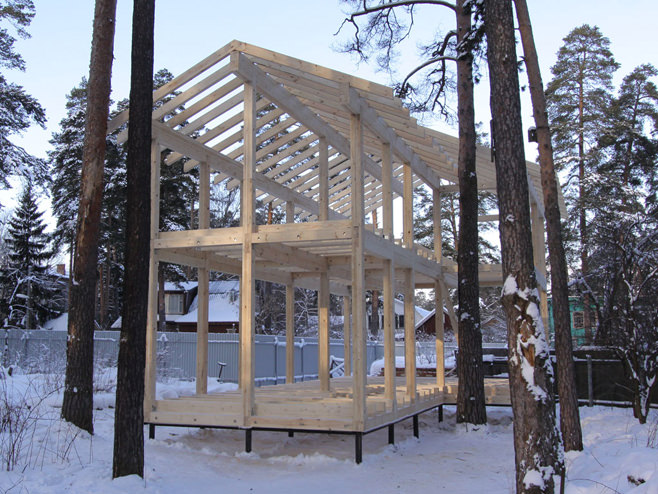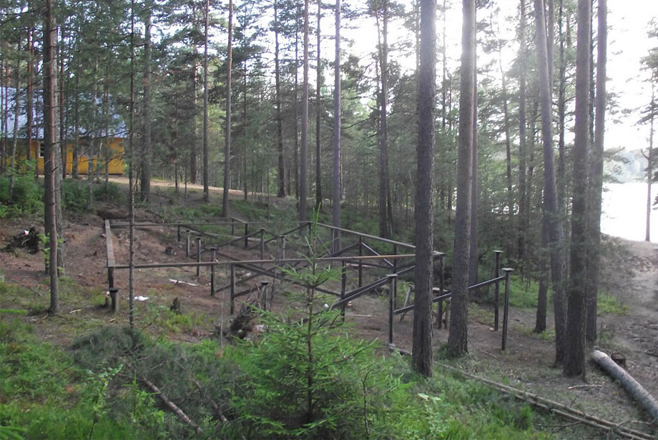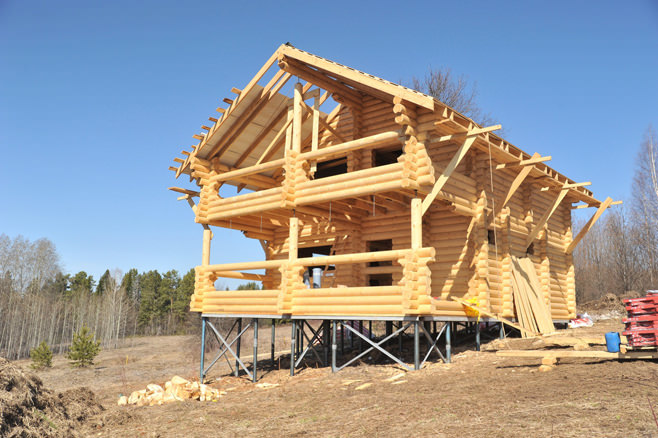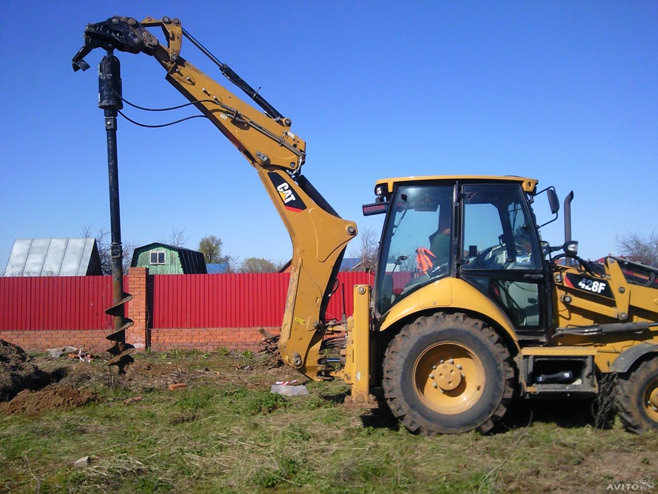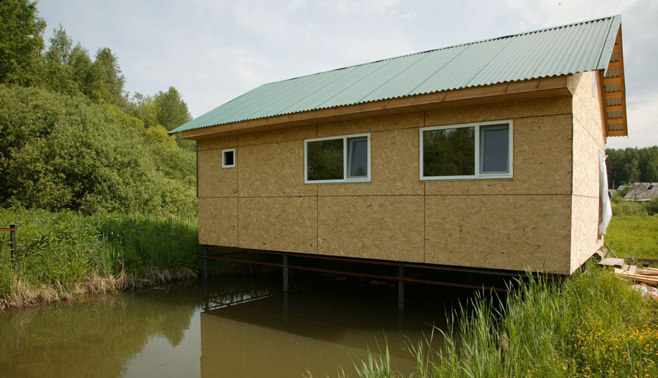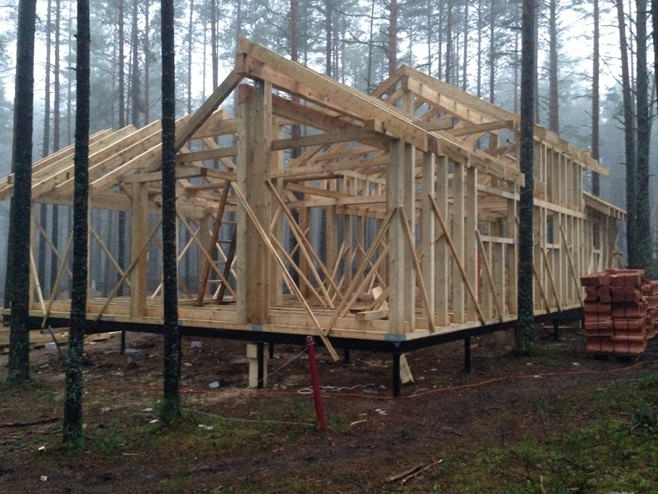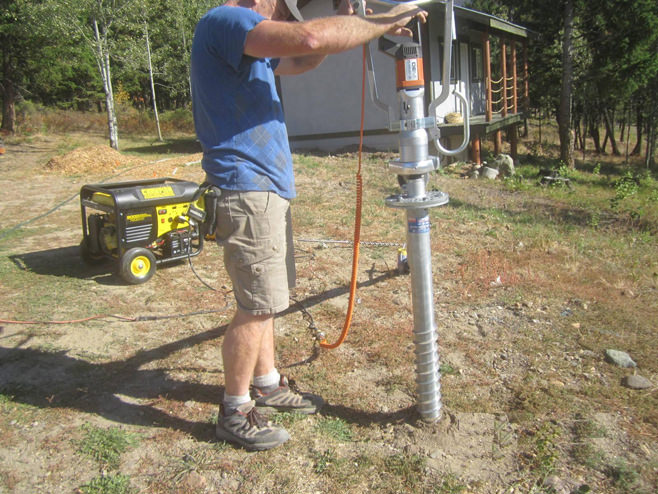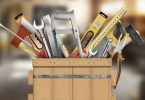Screw foundation piles are steel pipes with an anti-corrosion surface that have a screw-shaped blade at the end. This article will look at the types, pros and cons of screw piles.
Types of screw piles for foundation
- Welded
For piles of a welded type, the end is in the form of a cone with blades welded to it.
- Cast
Cast piles have a monolithic structure (one-piece tip), the service life of such a screw foundation pile is longer than that of a welded.
- Combined
In combined piles, the pile cone is made by casting, and then the blades are attached to it by welding.
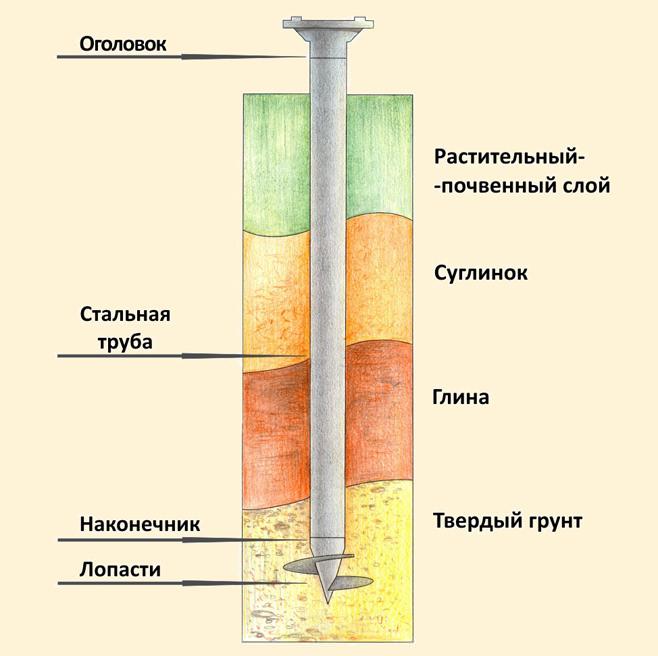
When choosing screw piles, attention should be paid to the manufacturing precision and quality of the metal. The position of the helical blade in relation to the axis of the pile must be strictly perpendicular.
It is also worth paying attention to the diameter, since it is responsible for the bearing capacity of the screw foundation pile. In the case of building a fence, pipes with a diameter of up to 7.5 cm can be used.If you want to install a building made of lightweight materials, piles of 9 cm or more are suitable. If a full-fledged house is being built, then screw piles with a diameter of 10 to 14 cm will be required.
Types of strapping of screw foundation piles
The installation of screw piles under the foundation requires special calculations, but this technology is not the most complicated in execution. Installation is carried out manually or using specialized equipment. The pipe is installed in the soil and poured with concrete, then a headgear is installed and a composition is applied to the entire structure to protect against corrosion.
Pros of screw piles
- Minimum waste in the construction area.
- Installation time – from one day.
- Construction can be read immediately after the installation of the piles.
- It is possible to mount screw foundation piles even in frozen soil, which allows you to start construction work at any time.
- There is no need to prepare in advance the territory where the construction will take place, the landscape will remain untouched.
- No problem in construction on uneven surfaces. Pipes can be selected in different lengths, thus achieving a uniform horizon on the surface.
- If the soil for construction is fluid or weak, then the screw piles easily pass through it and are fixed in a stable layer of soil.
- When it is possible to install screw piles without equipment, then only physical strength and a special wrench are useful.
- Screw piles can be built up, shortened, dismantled and restored.
- If we compare all the pros and cons, screw piles are the most economical option compared to other types of foundations..
Cons of screw piles
- Construction using screw piles under the foundation does not have a basement.
- Since the main material is metal, the disadvantage of screw piles is corrosion. The quality of the protective layer of the piles should be checked in advance.
- If the construction site is located on rocky terrain, then you will have to use specialized equipment. It will be impossible to install piles manually.

